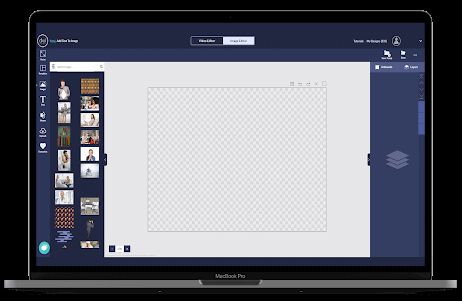
Cómo utilizar nuestro creador de videos de YouTube
Paso 1: Inicia sesión en tu cuenta de Design Wizard y sube tu archivo de video. También puedes seleccionar de nuestra extensa biblioteca de videos. Puedes buscar, utilizando filtros, un tema, estilo o tipo de video específico. Con videos de aspecto profesional a tu disposición, tienes un montón de posibilidades.
Paso 2: Comienza a personalizar tu video de YouTube. Nuestro editor de video realmente hace que sea súper fácil diseñar tu video como lo haría un profesional. Y no se requiere experiencia en edición.

Paso 3: Cambia elementos de tu video. Puedes cambiar cosas como el brillo y el contraste. También puedes ajustar la opacidad. Con nuestro creador de videos de YouTube, incluso tienes la capacidad de agregar imágenes, logotipos o texto a tu fondo de video, por ejemplo.
Paso 4: Descarga y comparte tu video de YouTube. Una vez que el video está donde quieres que esté, simplemente descárgalo y compártelo. En este punto, puedes subirlo a YouTube. También puedes subirlo a Facebook o a cualquier canal de redes sociales relevante.

Una herramienta de diseño de video que lo hace
Hay muchos editores de video y creadores de video por ahí... ¿Por qué la herramienta de diseño de Design Wizard? ¿Qué tal porque es increíblemente fácil de navegar, incluso para aquellos con habilidades de diseño limitadas? El tablero intuitivo básicamente te guía a medida que avanzas, ya sea un video corto o uno más largo.

La alternativa asequible al creador de videos en línea
Hacer un video profesional de YouTube no debería romper el banco. Hacemos el proceso de desarrollar tu próximo video pronto a ser viral rápido y asequible. No se necesita equipo costoso. Todo está allí, para incluir una impresionante biblioteca de plantillas de video listas para usar.

El editor de videos de YouTube de Design Wizard, llevando los videos en línea a otro nivel
Todo lo que tienes que hacer para empezar es crear una cuenta y empezar a buscar en nuestra biblioteca de videos, si no tienes ya un archivo de video para subir. ¡Luego diviértete haciéndolo tuyo!
